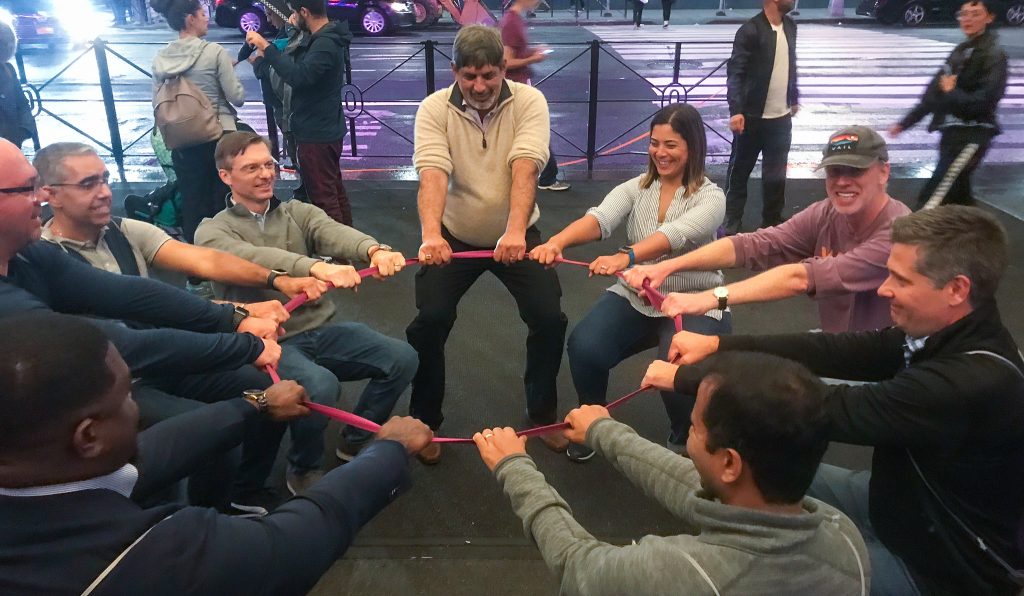Pay Now, or Pay Later
During a lengthy business & IT consulting career, my colleagues and I frequently encountered software environments (and processes) stymied by accumulated inefficiencies.
In some cases, the effects of technical design decisions made years earlier — by different people under different circumstances — perpetuated momentum in unwanted directions. In other instances, the urgency of entrepreneurism prevented proper investments in system integration, resulting in rapid time-to-market…for solutions stitched together with bailing twine.
In software engineering circles, this notion of “pay now, or pay later with interest” has a name: Technical Debt.

A Human Equivalency to Technical Debt
In 2016, a purposeful reexamination of my values and priorities led to a long-overdue “professional correction,” bringing me back to the beginnings of my career in education, when teaching, coaching, and counseling young people allowed for truly important relationships and a sense of purpose.
Now, my work at Outward Bound Professional places me in close contact with diverse organizations and people striving to develop high-performance cultures, teams, and leaders. Seeing groups and individuals pushing towards their best selves and offering compassionate support to one another makes every engagement rewarding.
Along the way, I’ve observed a human equivalent to Technical Debt, which my inner voice now calls “The Persona Tax.” We all pay it, but how (and how much) varies by person and organization.

What’s the True Cost?
More than likely, “The Persona Tax” is manifesting itself, right now, within your work team. But in what form?
· Innovative ideas unspoken?
· Conflicts unresolved?
· Strengths untapped?
· Multipliers undiscovered?
· Swim lanes swum?
· Questions swallowed?
· Intent misinterpreted?
· Motivation lost?
When team members exert more energy projecting workplace veneers than they do contributing their truest thoughts, the Persona Tax debt mounts…and fast. Teams sputter.
What causes people to create and perpetuate these alter ego facades? Is it concern that they are not what is expected of them? Self-doubt? Image consciousness? Imposter Syndrome? Compliance with an organizational culture?
In her TED talk “Building a Psychologically Safe Workplace,” Amy Edmonson of Harvard Business School notes that in order to avoid appearing ignorant, incompetent, intrusive or negative, people simply don’t ask questions, don’t admit weaknesses, don’t offer ideas, and don’t critique the status quo…and thus, errors go uncorrected and innovative thoughts go unheard.

Reducing your Debt
Have you created space where authenticity can prevail over resume-bolstering? Where people can ask questions? Admit they need help? Celebrate lessons learned through failure? Vocalize far-fetched ideas? Question authority? Relate?
In my own experience, even well-intentioned organizations get it wrong when it comes to establishing relationships amongst team members. They over-estimate the value of social settings and entertainment as a means to relationship building.
While there’s nothing wrong with a celebratory outing to acknowledge hard work and achievement, expensive dinners and company parties do NOT pay down your Persona Tax debt.…In fact, they may increase it, inadvertently, as small talk thrives in these environments.

Promote “Truer” Relationships
Practice being a team in an environment that promotes authenticity, where personas diminish and genuine behaviors emerge.
At Outward Bound Professional, we create learning opportunities that put colleagues on equal footing and engender an “outside the comfort zone” experience for everyone involved. By confronting teams with unfamiliar challenges which can’t be solved individually, we provoke behaviors essential to high-performing teams: problem solving, collaboration, communications, experimentation, risk-taking, vulnerability, support, and trust. Because the experiences require a diversity of skills and roles, the varied strengths and styles within a group are illuminated in both Leadership and Followership capacities.
Our program concepts and locales intentionally bear no resemblance to our clients’ industry domains, allowing participants to quickly cast aside their workplace roles and titles so that implicit hierarchies breakdown. Colleagues behave and contribute freely. Relationships deepen, and individuals discover more about their own potential and that of their team, while also better appreciating the people and vast skills around them. The Persona Tax shrinks the more people “come as they are” to work.



